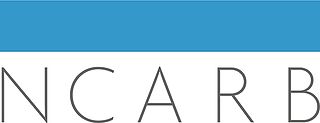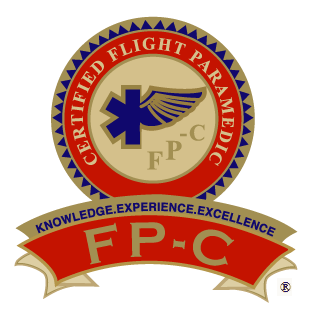
A psychologist is a professional who practices psychology and studies mental states, perceptual, cognitive, emotional, and social processes and behavior. Their work often involves the experimentation, observation, and interpretation of how individuals relate to each other and to their environments.

A medical license is an occupational license that permits a person to legally practice medicine. In most countries, a person must have a medical license bestowed either by a specified government-approved professional association or a government agency before they can practice medicine. Licenses are not granted automatically to all people with medical degrees. A medical school graduate must receive a license to practice medicine to legally be called a physician. The process typically requires testing by a medical board. The medical license is the documentation of authority to practice medicine within a certain locality. An active license is also required to practice medicine as an assistant physician, a physician assistant or a clinical officer in jurisdictions with authorizing legislation.

The Doctor of Psychology is a professional doctoral degree intended to prepare graduates for careers that apply scientific knowledge of psychology and deliver empirically based service to individuals, groups and organizations. Earning the degree was originally completed through one of two established training models for clinical psychology. However, Psy.D. programs are no longer limited to Clinical Psychology as several universities and professional schools have begun to award professional doctorates in Business Psychology, Organizational Development, Forensic Psychology, Counseling Psychology, and School Psychology.
Clinical psychology is an integration of human science, behavioral science, theory, and clinical knowledge for the purpose of understanding, preventing, and relieving psychologically-based distress or dysfunction and to promote subjective well-being and personal development. Central to its practice are psychological assessment, clinical formulation, and psychotherapy, although clinical psychologists also engage in research, teaching, consultation, forensic testimony, and program development and administration. In many countries, clinical psychology is a regulated mental health profession.
The United States Medical Licensing Examination (USMLE) is a three-step examination program for medical licensure in the United States sponsored by the Federation of State Medical Boards (FSMB) and the National Board of Medical Examiners (NBME). Physicians with a Doctor of Medicine (MD) degree are required to pass the USMLE for medical licensure. However, those with a Doctor of Osteopathic Medicine degree (DO) are required to take the COMLEX-USA (COMLEX) exams.
The National Council of Examiners for Engineering and Surveying (NCEES) is an American non-profit organization dedicated to advancing professional licensure for engineers and surveyors. The Council’s members are the engineering and surveying licensure boards from all 50 U.S. states, the District of Columbia, Guam, Northern Mariana Islands, Puerto Rico and the U.S. Virgin Islands. These boards are divided into four geographic zones: Central, Northeast, Southern, Western. It is headquartered in Greenville, South Carolina.
The Architect Registration Examination (ARE) is the professional licensure examination adopted by the 50 states of the United States, the District of Columbia, and four U.S. territories. The exam is also accepted by 11 provincial and territorial architectural associations for architectural registration in Canada. The ARE assesses candidates on the knowledge, skills, and abilities required for providing services in the practice of architecture.
The National Council Licensure Examination (NCLEX) is a nationwide examination for the licensing of nurses in the United States, Canada, and Australia since 1982, 2015, and 2020, respectively. There are two types: the NCLEX-RN and the NCLEX-PN. After graduating from a school of nursing, one takes the NCLEX exam to receive a nursing license. A nursing license gives an individual the permission to practice nursing, granted by the state where they met the requirements.

The National Council of Architectural Registration Boards (NCARB) is a nonprofit corporation comprising the legally constituted architectural registration boards of the 50 states, the District of Columbia, Guam, the Northern Mariana Islands, Puerto Rico, and the U.S. Virgin Islands as its members. Its mission is to collaborate with licensing boards to facilitate the licensure and credentialing of architects to protect the health, safety, and welfare of the public.
The College of Psychologists of Ontario (CPO) is the regulatory college for the profession of psychology in Ontario, Canada. It sets the standards for the provision of psychological services by Psychologists and Psychological Associates.

A certified flight paramedic (FP-C) is a person who has met the advanced certification requirements for flight paramedics established for this designation by the International Board of Specialty Certification (IBSC), a not-for-profit organization responsible for the administration and development of specialty certification exams for critical care professionals. The FP-C exam was the first specialty paramedic certification offered by the Board for Critical Care Transport Paramedic Certification in 2000. This certification is designed for experienced paramedics who have demonstrated advanced knowledge of critical care medicine.

A high-stakes test is a test with important consequences for the test taker. Passing has important benefits, such as a high school diploma, a scholarship, or a license to practice a profession. Failing has important disadvantages, such as being forced to take remedial classes until the test can be passed, not being allowed to drive a car, or difficulty finding employment.
Board certification is the process by which a physician or other professional demonstrates a mastery of advanced knowledge and skills through written, oral, practical, or simulator-based testing.

The American Board of Professional Psychology (ABPP) is the primary organization for specialty board certification in psychology.
The Council for Interior Design Qualification (CIDQ), independent of state and provincial credentialing bodies, provides the North American public with means to identify interior designers who have demonstrated the minimum level of competence needed to practice interior design. CIDQ offers a professional examination in interior design, and covers those aspects of the practice of interior design that affect the public's health, life style and welfare.
Professional requirements for architects vary from place to place, but usually consist of three elements: a university degree or advanced education, a period of internship or training in an office, and examination for registration with a jurisdiction.
The National Board for Respiratory Care (NBRC Inc. is a non-profit organization formed in 1960 with the purpose of awarding and maintaining credentialing for Respiratory Therapists in the United States. The NBRC is the only organization in the United States which develops certification examinations for Registered Respiratory Therapists and Certified Respiratory Therapists. The NBRC also offers additional specialization credentialing for respiratory practitioners that hold its certifications. The CRT and RRT designations are the standard credential in respiratory care for licensure requirements in the portions of the United States that have enacted a Respiratory Care Act. States that license respiratory therapists sometimes require the practitioner to maintain their NBRC credentialing to maintain their license to practice. The NBRC is headquartered in Overland Park, Kansas. It has been in the Kansas City metropolitan area since 1974. The NBRC is located at 10801 Mastin St, Suite 300, Overland Park, KS 66210.
Advanced practice registered nurses (APRNs) are registered nurses with graduate degrees in nursing. APRN roles include: certified nurse midwife, clinical nurse specialist, certified registered nurse anesthetist, and nurse practitioner. APRNs assess, diagnose, manage patient medical problems, order diagnostic tests, and prescribe medications. Rules, regulations, and credentialing for APRNs vary by state. This page outlines the regulatory processes for nurse practitioners in Wisconsin, including education, certification, licensing, and credentialing. Regulatory and credentialing processes are continuously changing, and the information contained on this page is current as of November 2015.






